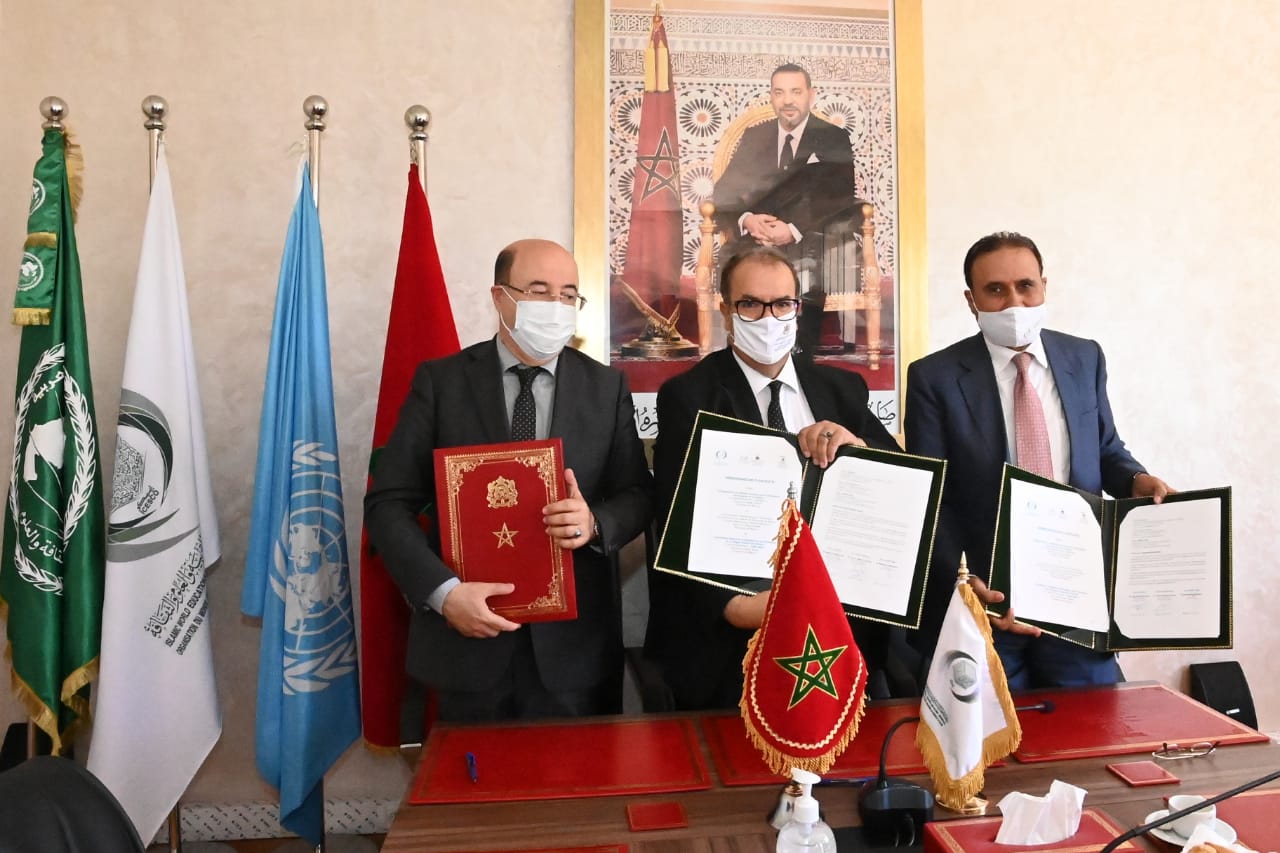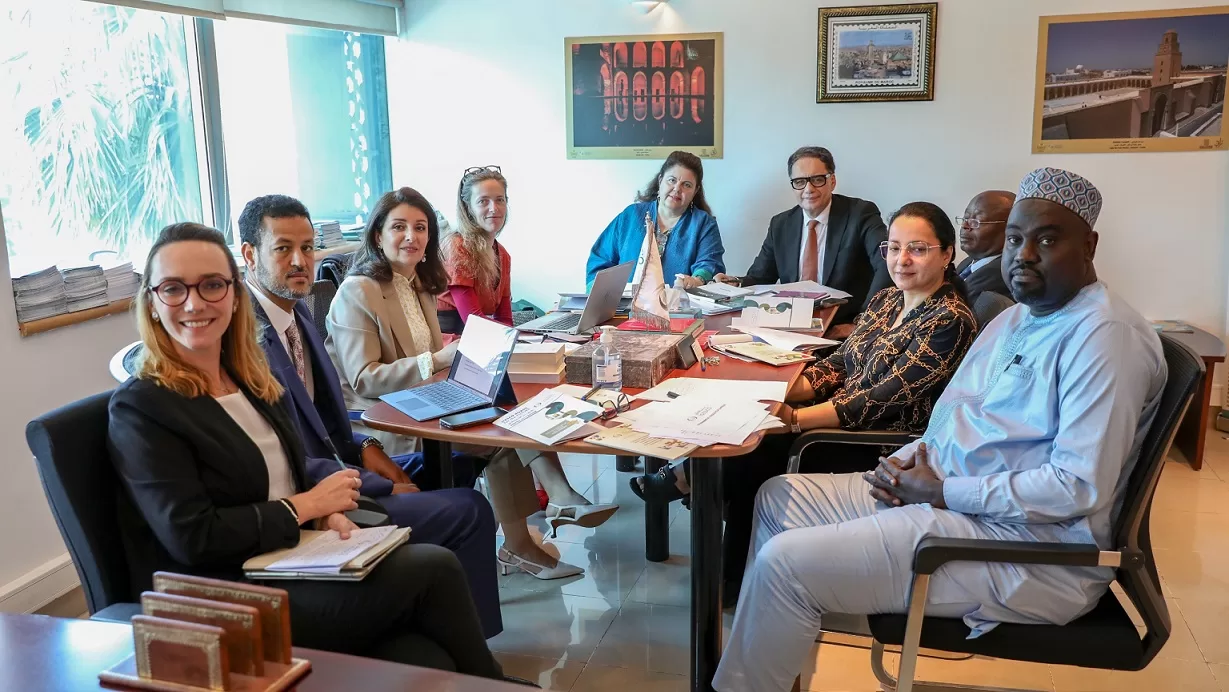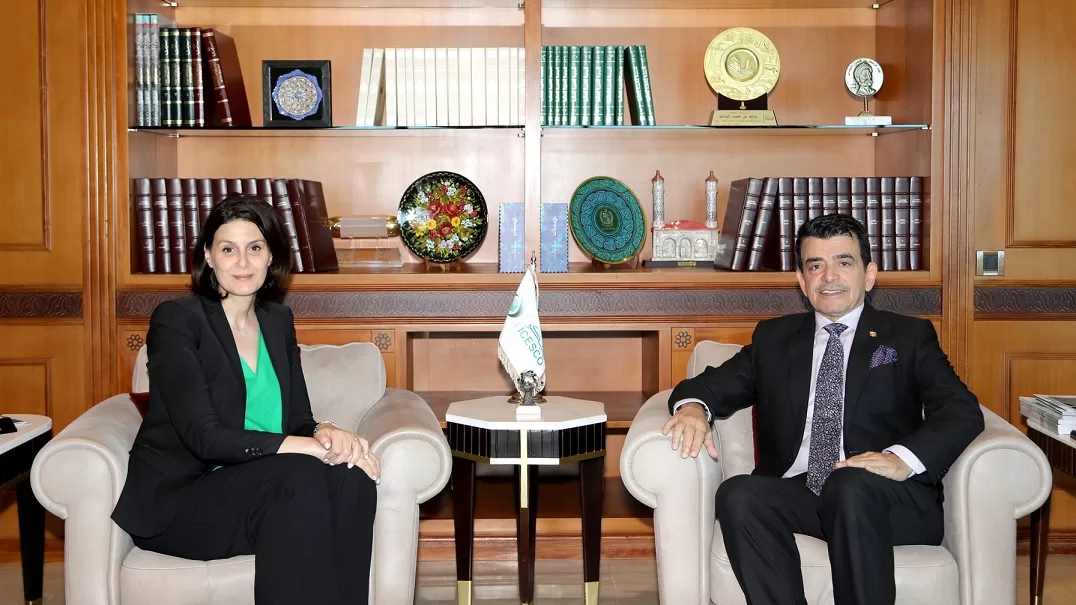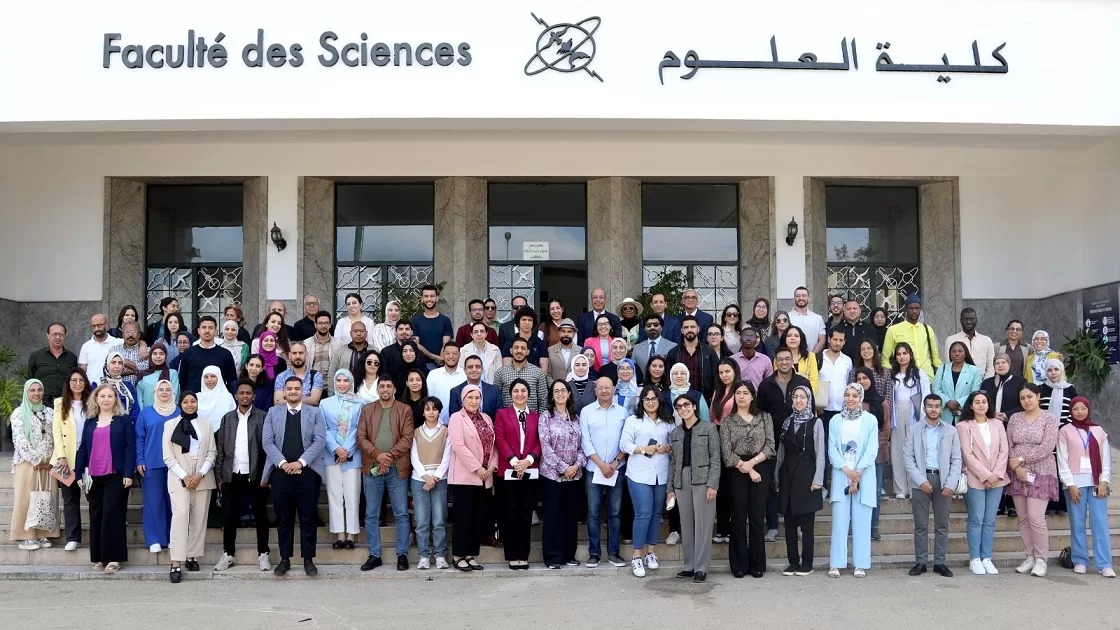
MoU between ICESCO, Moroccan National Commission for Education, Science and Culture, and Regional Academy for Education and Training of Rabat, Salé, Kenitra Region

25 June 2021
The Islamic World Educational, Scientific and Cultural Organization (ICESCO), the Moroccan National Commission for Education, Science and Culture, and the Regional Academy for Education and Training of Rabat, Salé, Kenitra Region signed a memorandum of understanding today, Thursday 24 June 2021, at the headquarters of the Moroccan National Commission. The MoU provides for cooperation between the three parties to implement the ICESCO Project to Improve Water and Sanitation Services in Schools in Rural Schools, which will be, as a first step, implemented in Morocco as a model for the rest of the Islamic world to follow.
The Projects aims to assist the Member States in the implementation of their projects targeting remote areas to give everyone access to drinking water and sanitation services.
The ICESCO delegation attending the signing ceremony consisted of Dr. Abdelilah Benarafa, ICESCO Deputy Director-General; Dr. Raheel Qamar, Head of the Science and Technology Sector; the Sector team; and Ms. Zeinab Iraqi, Supervisor of the General Secretariat of National Commissions and Conferences. The Moroccan National Commission was represented by its Secretary-General, Mr. Jamal El-Aloua, while the Academy was represented by its Director, Prof. Mohamed Addardour. The signing ceremony was also attended by several members of the National Commission as well as heads of departments of its General Secretariat.
In his address following the signing ceremony, Dr. Abdelilah Benarafa, ICESCO Deputy DG, reaffirmed the importance of providing access to drinking water, sanitation and hygiene services to students. He added that to achieve the desired goals from this program as well as other programs and benefit a maximum number of Member States, ICESCO seeks to build more cooperation relations with international organizations, donors and other specialized institutions in this field to help sponsor and fund these projects.

Mr. Jamal El-Aloua, expressed his thanks to ICESCO for its efforts to counter the COVID-19 pandemic and underscored that this promising project benefits students attending schools in rural areas. He added that the project will be gradually expanded to include other regions in the Kingdom and will serve as a model to be followed.
“This project’s governance model involves all stakeholders, as its implementation relies on the expertise of the specialized parties at the Regional Academy for Education and Training, given its extensive expertise in this area,” Mr. El-Aloua stated.
For his part, Prof. Addardour commended the initiative which supports the efforts of the Ministry to equip rural educational institutions, noting that even though the Moroccan competent parties have exerted tremendous efforts in this field, more work needs to be carried out. He added that the Project falls within the strategy of His Majesty King Mohamed VI, may Allah assist him, to open up to Africa, maintaining that the Project will rely on innovative and environmentally friendly technologies and solutions that take into account the responsible use of water resources.
Dr. Raheel Qamar gave an overview of the Project and its goals, expressing ICESCO’s readiness to cooperate with the National Commission in the implementation of other projects in the fields of entrepreneurship and space sciences. He stated that the success of the project in the Kingdom of Morocco will pave the way for its success in other countries.
The MoU provides for conducting a preliminary survey of schools in rural areas focusing on the needs for reparation and improvement of drinking water, sanitation and hygiene services to determine the beneficiary schools. It also provides for the organization of training sessions and awareness-raising campaigns on good hygiene practices in schools for the benefit of teachers and students.




